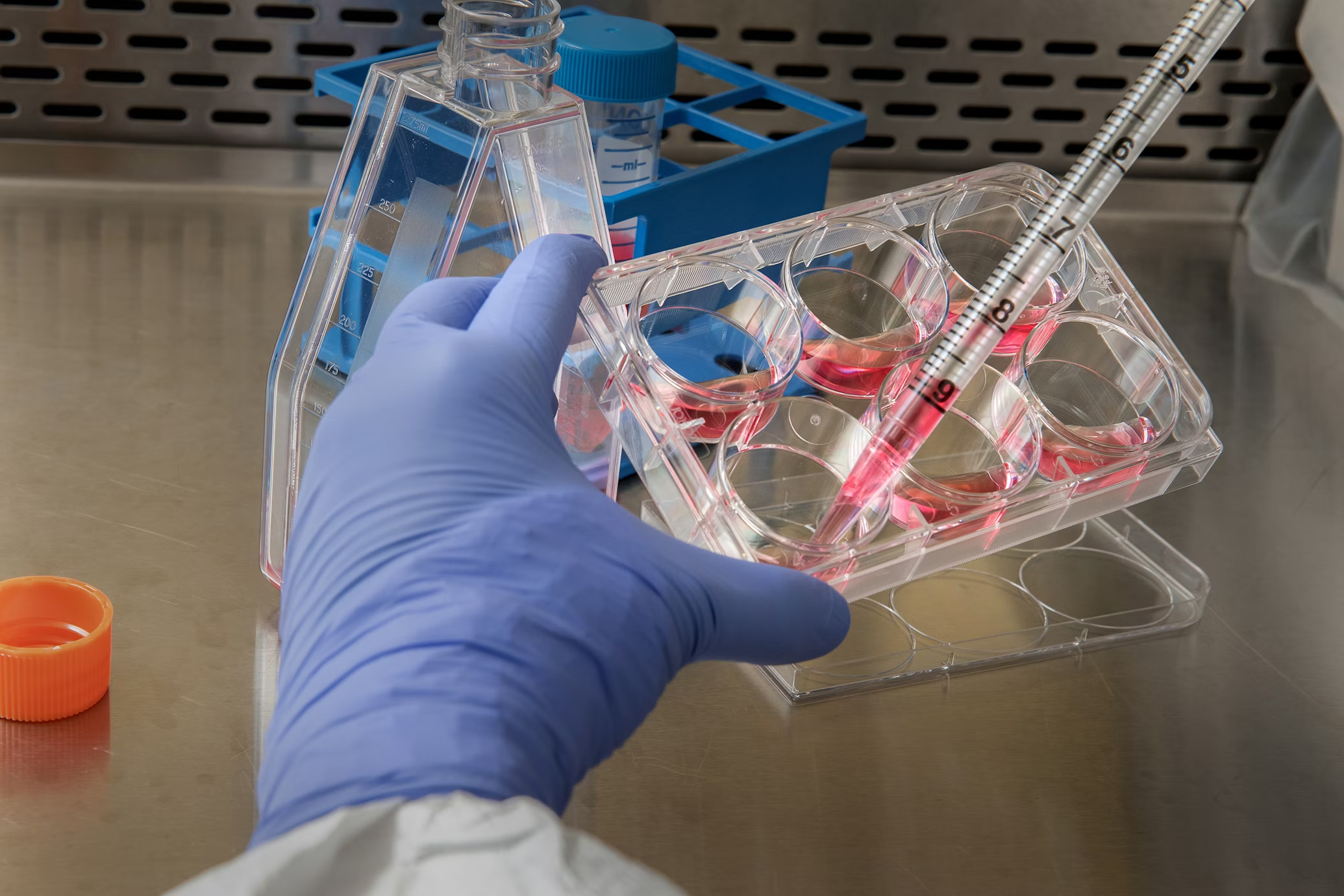
SARS-CoV-2, the virus that causes COVID-19, originated from Wuhan, China, in late 2019. Since then, SARS-CoV-2 has spread across the world and has claimed over 6 million lives as of April 2023. To develop better treatments for the virus and prevent another global pandemic, many scientists have worked to pinpoint the source of the virus. Discussions in the scientific community—and in the public—about the origin of SARS-CoV-2 are centered around determining whether the virus is of natural origin (from animals), or if it was leaked from a laboratory. At first look, both explanations are plausible—Wuhan is home to a “wet market,” where live animals are butchered upon purchase by customers, but the city is also home to a large virology research institute. The lab-leak hypothesis has not been definitively disproven, but mounting evidence indicates that the virus is of natural origin. Nevertheless, some members of the US American media and government seem to advocate for the lab-leak hypothesis just as strongly as scientists argue that the evidence supports the natural-origin hypothesis.
Current scientific evidence supports the natural-origin hypothesis over the lab-leak hypothesis. Examining the SARS-CoV-2 genome has shown that it was not likely to be engineered (Garry, 2022). Scientists have also taken swabs from the Huanan Seafood Wholesale Market—the “wet market” where COVID-19 may have originated—and these swabs tested positive for both SARS-CoV-2 and for animal DNA, suggesting a natural origin (Liu et al., 2023). Given that the scientific consensus is in favor of COVID-19 having natural origins, journalists who try to weigh both sides of the argument equally may be giving more credit than is due to the lab-leak hypothesis, misleading the public about a major public health concern.
Additionally, some scientists are concerned that the credit given to the lab-leak hypothesis is political in nature and may damage future research efforts. Dr. Peter Hotez, a physician and scientist who specializes in infectious diseases and vaccine development, criticized lab-leak speculation as “all political theater” that will “make [the United States] more vulnerable to future pandemics” (Hotez, 2022). The concern about vulnerability is supported by the fact that, ultimately, the National Institutes of Health fund the majority of biomedical research, so researchers’ priorities are often in line with the governments’ priorities for research. The U.S. House of Representatives has continued to hold hearings in order to investigate the origins of COVID-19, and witnesses include everyone from scientists to political commentators (Lenharo and Wolf, 2023). If the US American government’s priority for COVID-19 research shifts to proving that COVID-19 came from a lab, there could be less funding to investigate early coronavirus detection and to develop vaccines and treatments for SARS-CoV-2 and related viruses.
Nonetheless, there is still a slight chance that the virus did originate from a lab, which is supported by “low” and “moderate” confidence conclusions from the Department of Energy and the FBI, respectively (Barnes, 2023). If journalists are hasty in discrediting the lab-leak hypothesis, and this hypothesis turns out to be true, the public may lose trust in journalists, scientists, or both if they feel they have been purposefully deceived. Topics pertaining to the COVID-19 pandemic are especially sensitive to fluctuations in trust, and even politicization. This is especially visible when looking at the political response to COVID-19 vaccinations, as vaccination rates largely occur along partisan lines (Albrecht, 2022). Therefore, it may be in journalists’ and scientists’ best interest to avoid prematurely ruling out the lab-leak hypothesis.
Ultimately, even if the scientific evidence supports the natural-origin hypothesis, journalists are not held to the same standards in delivering the news as scientists are when publishing research papers. This means that there is no strict requirement for including scientific evidence in news reports. While some argue that journalists should hold themselves to a high standard of scientific accuracy because they have a duty to inform the public, others argue that journalists have a duty to represent different perspectives equally and neutrally so audiences can evaluate the situation for themselves. Traditionally, US Americans believe the media has an obligation to fulfill both duties, but especially in cases like discovering the origin of SARS-CoV-2 where scientific knowledge is constantly changing, balancing both becomes an ethical dilemma.
Media attention and government priorities will continue to influence public understanding and opinion of scientific knowledge. When it comes to a pandemic that has affected nearly everyone in the world, these influences are bound to have a sizeable effect on public perception of science and medicine. In the midst of a scientific debate, without the same technical knowledge that scientists may have, how should journalists report on the origins of COVID-19?
Discussion Questions:
- Between government reports, scientific papers, and statements put out by scientists, what should journalists prioritize when reporting on the origins of COVID-19?
- How should journalists report on debates within the scientific community?
- What ethical guidelines should journalists follow in interviewing—and using—scientists in their stories?
- What principles should guide scientists in communicating with journalists about complex scientific matters?
Further Information:
Albrecht, Don. “Vaccination, politics and COVID-19 impacts.” BMC Public Health. January 14, 2022. Available at: https://bmcpublichealth.biomedcentral.com/articles/10.1186/s12889-021-12432-x
Barnes, Julian. “Lab Leak Most Likely Caused Pandemic, Energy Dept. Says.” The New York Times. February 26, 2023. Available at: https://www.nytimes.com/2023/02/26/us/politics/china-lab-leak-coronavirus-pandemic.html
Garry, Robert. “SARS-CoV-2 furin cleavage site was not engineered.” Proceedings of the National Academy of Sciences. September 29, 2022. Available at: https://www.pnas.org/doi/10.1073/pnas.2211107119
Hotez, Peter. “Bottom line: the lab leak GOF is all political theater…” [Tweet]. Twitter. November 1, 2022. Available at: https://twitter.com/PeterHotez/status/1587491685319188481
Lenharo, Mariana, and Wolf, Lauren. “US COVID-origins hearing renews debate over lab-leak hypothesis.” Nature News. March 9, 2023. Available at: https://www.nature.com/articles/d41586-023-00701-1
Liu, William, et al. “Surveillance of SARS-CoV-2 at the Huanan Seafood Market.” Nature News. April 5, 2023. Available at: https://www.nature.com/articles/s41586-023-06043-2
Authors:
Emma Babaian, Kat Williams, & Scott R. Stroud, Ph.D.
Media Ethics Initiative
Center for Media Engagement
University of Texas at Austin
April 16, 2024
Image by CDC on Unsplash
Cases produced by the Media Ethics Initiative remain the intellectual property of the Media Ethics Initiative and the Center for Media Engagement. This case was supported by funding from the John S. and James L. Knight Foundation. This case can be used in unmodified PDF form in classroom or educational settings. For use in publications such as textbooks, readers, and other works, please contact the Center for Media Engagement.
Ethics Case Study © 2024 by Center for Media Engagement is licensed under CC BY-NC-SA 4.0




